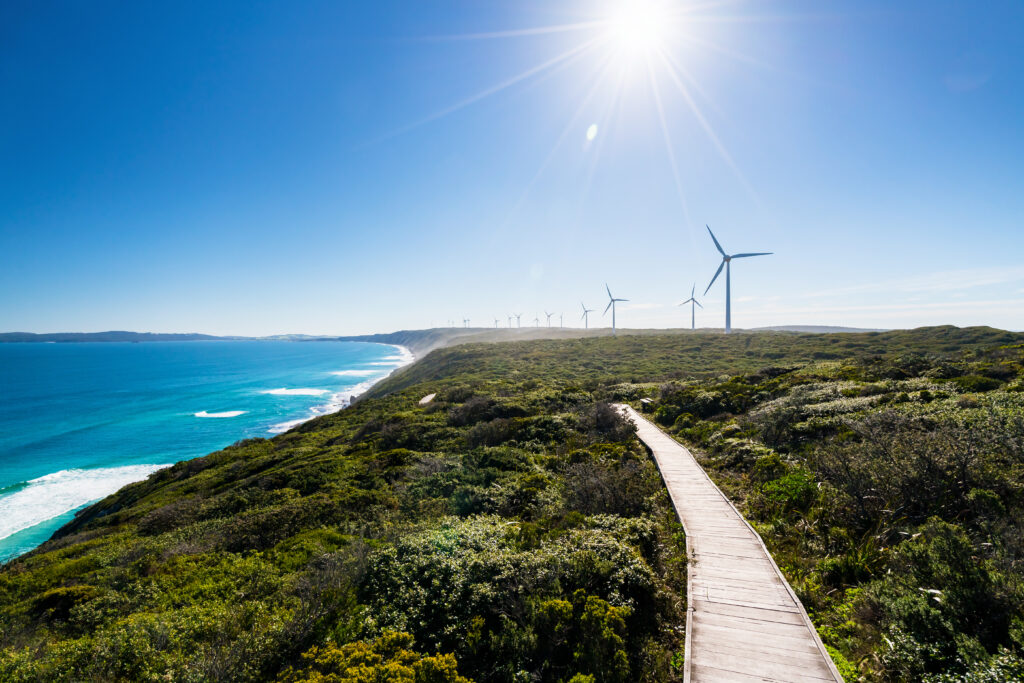Earth Day, held every year on 22 April, is a global celebration to appreciate and protect our planet’s environment. With its diverse ecosystems and unique wildlife, Australia is a fantastic place for international students to connect with nature and contribute to environmental conservation.
In the spirit of Earth Day, we take you through Australia’s remarkable ecosystems, the country’s key environmental issues and how you, as an international student, can contribute to preserving the natural beauty we’re so lucky to live amongst.
Australia’s unique environment and the importance of Earth Day
With nearly 90% of its plants and 87% of its mammals found nowhere else on Earth, Australia is a land of unique beauty, where ancient rainforests meet vibrant coral reefs and vast deserts give way to lush eucalyptus forests. As an international student, you have the privilege of exploring this natural wonderland.
In recent years, Australia has experienced a series of climate-related disasters, including bushfires, intense heat waves and severe flooding. These events have underscored the importance of taking action to protect the environment, reduce greenhouse gas emissions and adapt to the changing climate. Earth Day serves as an opportunity for us all to come together and commit to these actions, ensuring a sustainable future for generations to come.
Key environmental issues facing Australia
Climate change: Australia is one of the countries most vulnerable to the impacts of climate change. Rising temperatures, changing rainfall patterns and more frequent extreme weather events are placing immense pressure on its ecosystems, agriculture and water resources.
Land clearing and habitat loss: Extensive land clearing for agriculture, urban development and mining has led to significant habitat loss, putting many native species at risk of extinction.
Invasive species: Introduced species like rabbits, foxes and cane toads have had detrimental impacts on Australia’s native wildlife.
Water scarcity: With an arid climate and variable rainfall, water is a precious resource in Australia. With one of the most unpredictable rainfall climates in the world, severe drought affects the country about once every 18 years.
Marine pollution: Australia’s extensive coastline and marine ecosystems are under threat from pollution, including plastic waste, chemical runoff and oil spills. Addressing marine pollution requires joint efforts to reduce waste, promote recycling and enforce strict environmental regulations.
How to get involved with environmental conservation in Australia
As an international student, you can make a difference on Earth Day and throughout the year by engaging in fun and meaningful sustainable practices. Here are some ideas to get you started:
Connect with nature
The first step to living a more sustainable life is appreciating the nature that surrounds us. Explore Australia’s national parks, marine reserves and local parks to experience the country’s unique biodiversity. If you get the chance, you should visit the Great Barrier Reef to witness firsthand the breathtaking beauty and biodiversity of the world’s largest coral reef system, which is home to thousands of unique marine species. This experience offers a deeper understanding of the importance of environmental conservation and provides an opportunity to connect with one of the planet’s most important natural wonders.
Volunteer
Join local clean-up initiatives, tree-planting projects or workshops to learn more about environmental issues and meet like-minded individuals. Sea Shepherd Australia and Conservation Australia are examples of two great environmental organisations that host regular events around the country where you can volunteer.
Green your campus
Start a sustainability club or participate in existing programs to help reduce waste, conserve energy and promote eco-friendly practices on your campus. Embracing this shared responsibility for our planet’s wellbeing encourages the development of innovative solutions and lasting change in the local community and beyond.
Share your culture
Share environmental practices and traditions from your home country with your Australian friends, promoting cultural exchange and fostering global environmental stewardship.
Practise everyday sustainability
Embrace eco-friendly habits in your daily life, such as using public transport, cycling or walking to reduce your carbon footprint. Opt for reusable items like water bottles, bags and containers to minimise waste. Be mindful of your energy and water consumption – aim to get your shower time down to four minutes or less! Try shopping at sustainable brands or consider op-shopping to find pre-loved clothing and items, reducing waste and promoting a circular economy. Australia has plenty of great op-shops around that are overflowing with clothes, like Salvos and Savers.
Check out more tips on how to be environmentally friendly in Australia!





